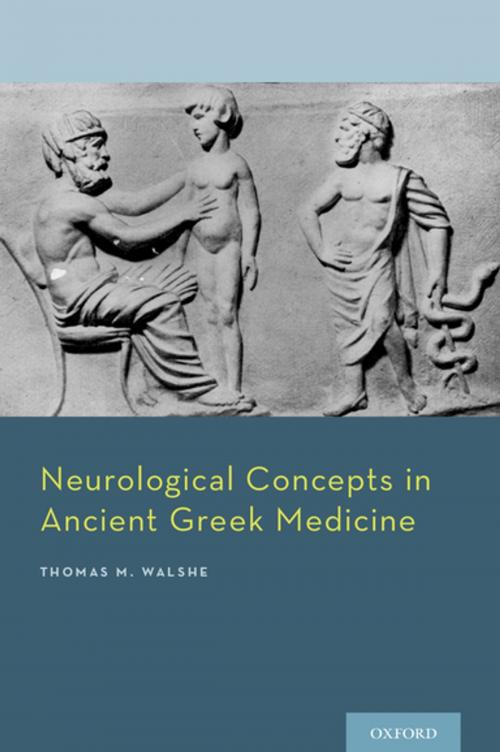Neurological Concepts in Ancient Greek Medicine
Nonfiction, Health & Well Being, Medical, Specialties, Internal Medicine, Neurology, Reference, History| Author: | Thomas M Walshe, III | ISBN: | 9780190218584 |
| Publisher: | Oxford University Press | Publication: | January 5, 2016 |
| Imprint: | Oxford University Press | Language: | English |
| Author: | Thomas M Walshe, III |
| ISBN: | 9780190218584 |
| Publisher: | Oxford University Press |
| Publication: | January 5, 2016 |
| Imprint: | Oxford University Press |
| Language: | English |
Neurological history claims its earliest origins in the 17th century with Thomas Willis's publication of Anatomy of the Brain, coming fully into fruition as a field in the late 1850s as medical technology and advancements allowed for in depth study of the brain. However, many of the foundations in neurology can find the seed of their beginning to a time much earlier than that, to ancient Greece in fact. Neurological Concepts in Ancient Greek Medicine is a collection of essays exploring neurological ideas between the Archaic and Hellenistic eras. These essays also provide historic, intellectual, and cultural context to ancient Greek medical practice and emphasizing the interest in the brain of the early physicians. This book describes source material that is over 2,500 years old and reveals the observational skills of ancient physicians. It provides complete translations of two historic Hippocratic texts: On the Sacred Diseases and On the Wounds of the Head. The book also discusses the Hippocratic Oath and the modern applications of its meaning. Dr. Walshe connects this ancient history, usually buried in medical histories, and shows the ancient Greek notions that are the precursors of our understanding of the brain and nervous system.
Neurological history claims its earliest origins in the 17th century with Thomas Willis's publication of Anatomy of the Brain, coming fully into fruition as a field in the late 1850s as medical technology and advancements allowed for in depth study of the brain. However, many of the foundations in neurology can find the seed of their beginning to a time much earlier than that, to ancient Greece in fact. Neurological Concepts in Ancient Greek Medicine is a collection of essays exploring neurological ideas between the Archaic and Hellenistic eras. These essays also provide historic, intellectual, and cultural context to ancient Greek medical practice and emphasizing the interest in the brain of the early physicians. This book describes source material that is over 2,500 years old and reveals the observational skills of ancient physicians. It provides complete translations of two historic Hippocratic texts: On the Sacred Diseases and On the Wounds of the Head. The book also discusses the Hippocratic Oath and the modern applications of its meaning. Dr. Walshe connects this ancient history, usually buried in medical histories, and shows the ancient Greek notions that are the precursors of our understanding of the brain and nervous system.















